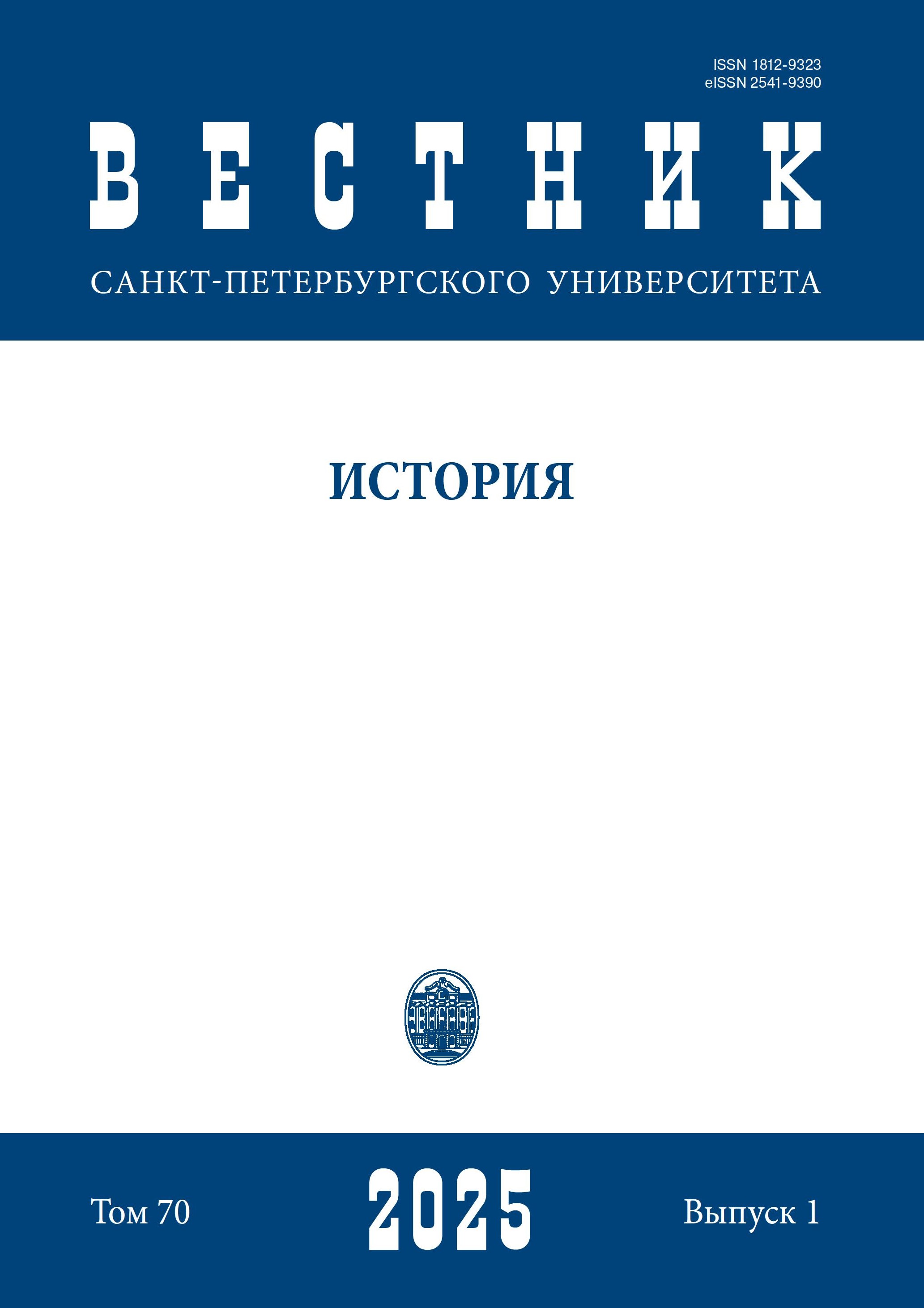From Antiquity to the Middle Ages along the Peripheral Paths of Soviet Marxism
DOI:
https://doi.org/10.21638/spbu02.2025.112Abstract
In the first part of the article, the author briefly examines the role of transitional eras in Marxist theory and in more detail in Soviet historical scholarship. The author believes that for a number of reasons (related primarily to theoretical principles), transitional eras turned out to be those periods that could receive consistent coverage in Soviet scholarship only if this was done at the level of a general overview with a minimum allowance for historical facts. When historians using more historical material, problems arose with constructing a consistent narrative. The second part of the article shows on several examples how the discussion about the transition from Antiquity to the Middle Ages was transformed in provincial Soviet historiography. Here the author reveals the features of Soviet historians provincial life, and talks about three attempts to solve the problem of the transition era, made by M. Y. Syuzyumov, V. T. Sirotenko (influenced by the views of Syuzyumov) and by philosopher S. E. Krapivensky. The third and final part of the article presents the conclusions of the study. The author offers an explanation for why these (and other similar) cases did not influence Soviet scholarship as a whole and were often not even taken into serious consideration by it: the problem lay in the communication distortion in interaction of the province and the “metropoles”. The actual result of the searches described in the article boiled down to the fact that the problem of the transitional era was discussed, but seemed to be lost in the discussion process.
Keywords:
Soviet historiography, transitional eras, provincial historiography, transition from antiquity to the Middle Ages
Downloads
References
Downloads
Published
How to Cite
Issue
Section
License
Articles of "Vestnik of Saint Petersburg University. History" are open access distributed under the terms of the License Agreement with Saint Petersburg State University, which permits to the authors unrestricted distribution and self-archiving free of charge.





